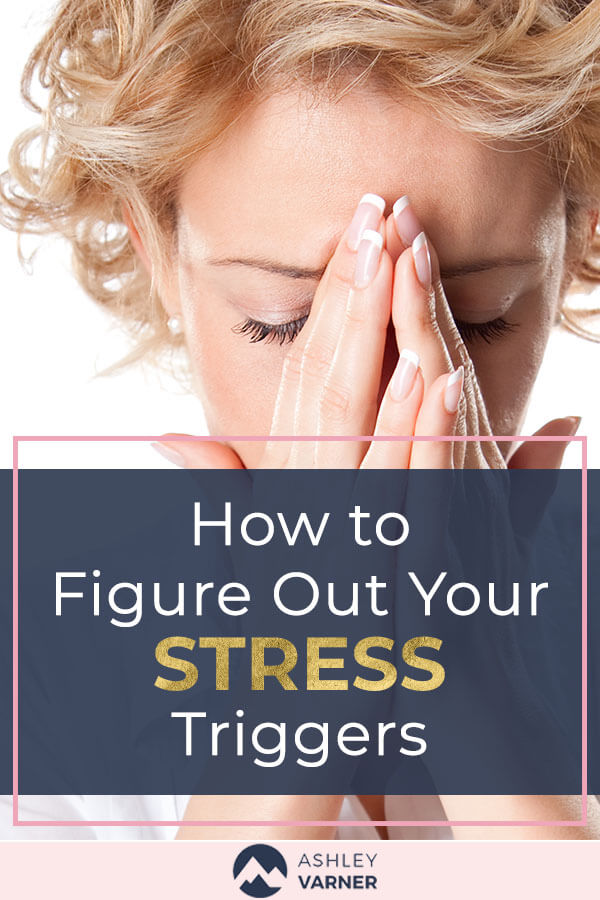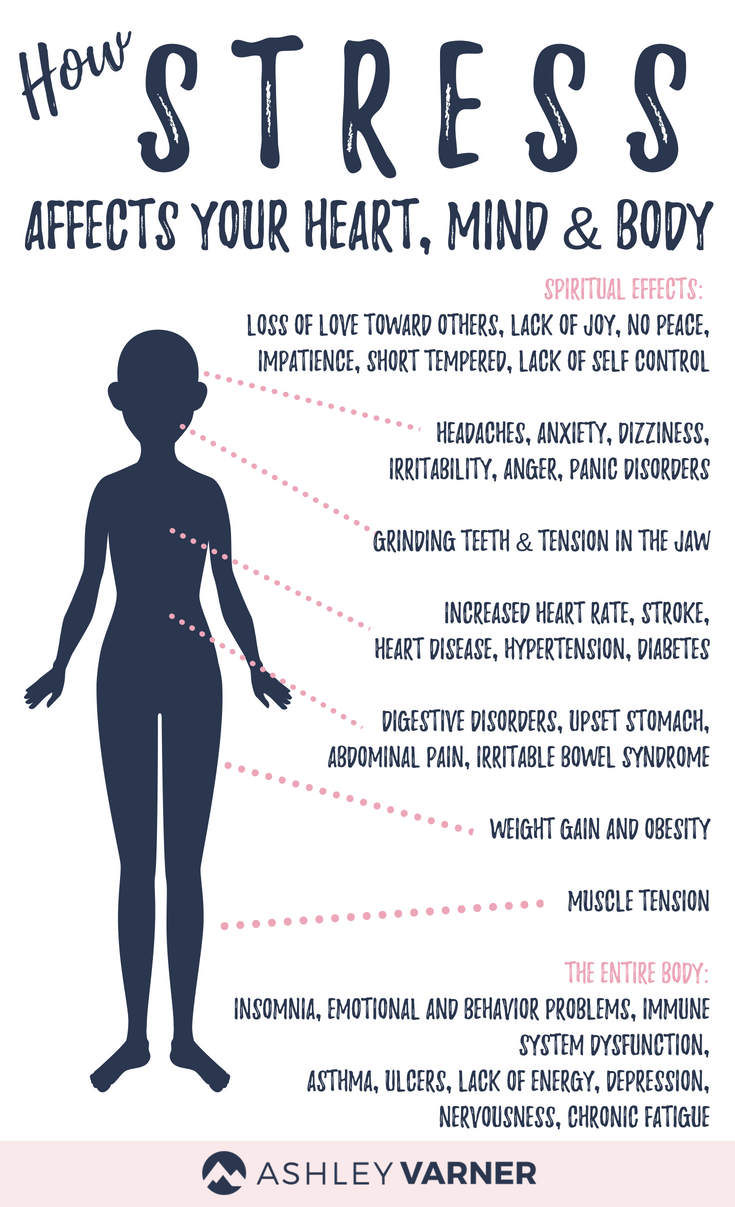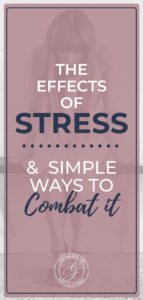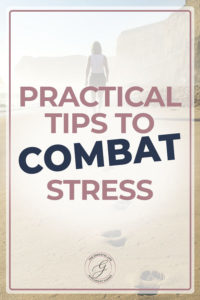Do you know what your stress triggers are? Most people don’t know that there are two different types of triggers.
Recently, I talked about how to have peace of mind. I shared that the trick to having peace of mind is knowing that it involves Someone greater than us.
If you’ve been following me for a while, you know that I teach that circumstances in your life don’t have to impact your emotions or your actions. Circumstances on their own do not make an impact. It is your thoughts about the circumstance that affect your emotions and influence your actions.
Today I want to change your mindset about the circumstances in your life so that you can navigate stress in a healthy and positive manner.
Most of us struggle with stress, and stress is what ends up causing fear and anxiety for us. For many people, the recent pandemic has ramped up stress and stolen peace, and social unrest and natural disasters have intensified the problem.
After talking to my clients and getting feedback from my audience, I’ve come to the conclusion that many people think they are dealing with stress when they are actually avoiding it. The four main ways of avoiding stress that I have observed are emotional eating (I have a whole program on that here), excessive drinking, immersion in social media, and wasting hours watching television/YouTube.
It’s time to stop avoiding our stress and start dealing with it.
Resources Mentioned
Thrive Bible Study Vault: https://ashleyvarner.com/thrive
Faith Food Freedom: https://thegracefullife.org/p/faith-food-freedom
The Mindset Reset: https://ashleyvarner.com/mindset
Highlights from the Episode
Let’s talk about the types of stress triggers and the healthy ways we can deal with them.
The Big Stress Triggers
The first type of trigger is the big stressor. These are the big events/situations that turn our lives upside-down. We hear about these all the time.
- The death of a loved one
- Divorce
- The loss of a job
- Chronic illness
- Family strife
- Caring for elderly or sick relatives
Even good changes can cause great amounts of stress. Getting married, moving into a new home, or a promotion at work can all cause change that results in major stress. Of course, the list of big stressors is endless.
Many of these big stressors are out of our control, but there are daily things that trigger stress that you 100% have control over.
Daily Stressors
Many of these daily stressors aren’t really things that we can change because they’re part of our everyday life. They result in chronic stress.
The problem with chronic stress is our bodies end up in a constant state of fight or flight, a state that can wear down our health. Chronic stress doesn’t have to be caused by huge stressors like the death of a loved one to have a huge impact on your health.

The Affects of Stress on the Body
The toll that stress takes on our health should motivate us to change out mindsets and live at peace. Here are some of the physical damages that stress causes:
- headaches
- dizziness
- anxiety
- irritability
- anger
- panic disorders
- tension in the jaw
- grinding teeth
- chronic fatigue
- increased heart rate
- stroke
- heart disease
- hypertension
- diabetes type I or II
- digestive disorders
- upset stomach
- abdominal pain
- irritable bowel syndrome
- weight gain (usually due to emotional or overeating)
- weight loss
- muscle tension
- lack of energy
- depression
- nervousness
- increase in addictive behaviors.
There are so many ways that stress can affect the body. That’s why we need to learn how to deal with it properly.

The Lord gave us each one body to live in during our lives, so we have to take care of it.
Several years ago, I started getting intentional with the stress in my life. I was in a heightened state of stress almost all the time mostly because of small, everyday stressors. I became sick, and after several weeks of being super sick, I went to the doctor.
The answer I got was surprising.
He said that because I wasn’t properly dealing with all my stress, it was causing all these other issues. At the time, I had some autoimmune disease issues (that God has since healed me from!), and my stress was causing flare ups. The stress in my life was exaggerating all my physical symptoms.
So, what changes did I have to make to get rid of this stress?
Stress Triggers start with Sensory Overload
Many struggles with stress start with sensory overload. At no time ever before has there been so much information coming at us as there is in this age.
I remember as a child, my parents purchased one of those encyclopedia collections, so we had all these encyclopedias sitting on a shelf, volumes A through Z.
The thought went through my mind, “Wow, that is so much information.”
Now, we have more information available at the tips of our fingers, and that information is changing so quickly and education is growing so rapidly that it’s easy to get overloaded by the information.
We have news reports from around the world in the palms of our hands. We have all types of notifications that come up on a minute-by-minute basis, whether it’s apps updating us or people blowing up our phones with messages.
Avoiding sensory overload
It’s hard to limit all the information that’s consistently being fed to us.
The best way to do this is to turn off your phone for a little while each day. And no, silent or vibrate is not enough.
What do you mean I’m supposed to completely turn off my phone?
I won’t lie, it made me a little anxious too, but that’s exactly the point.
If giving up something causes you to get nervous, it’s because you’re using it to avoid the stress in your life rather than deal with it.
Turn off notifications
That’s why I’ve turned off notifications. Constant notifications make us nervous about missing something. There are news updates, Facebook likes/comment alerts, Snapchats, emails, and all sorts of other notifications.
Go into the settings on your phone, and change your notifications.
Go ahead…I’ll wait.
When you change those notifications, YOU take back control of when you see information.
What I Do: I took Facebook and Instagram completely off my phone. I have a specific time each day when I go onto social media, post, and respond to comments. The longer I abstain from social media, the less I want to be on social media. It might feel difficult at first, but you’ll get used to the peace.
Don’t be a slave to the little badges or beeps popping up on your phone telling you how to spend your time. Don’t let notifications dictate your day. Change your mindset: you are in control of your sensory input.
Unsubscribe from emails
Similar to turning off notifications, unsubscribing from unwanted email lists can bring relief.
When I was first trying to get rid of stress, I cleaned out my email inbox until I was down to zero emails. I’ve kept this up for a couple years now, and I love it.
Think about your email as a mail tray on your desk. When something is physically in the inbox, you take care of it and then get rid of it. If you do the same thing with your email, it won’t be overwhelming.
Keep the stuff that you need to keep, obviously, but put them in a folder so it’s organized. Whenever you open your inbox, it should only include the things that really matter right now. Once you’ve taken care of those things, move them out of the way so that you’re limiting what you see to only what’s important.
Hidden Stress Triggers: Being Dehydrated and Malnourished
Dehydration and being malnourished can also cause stress.
Now, I’m not talking about people in impoverished countries who struggle to access food and water. Dehydration and malnourishment can happen even when you’re eating daily and have access to clean water. It can happen whether you’re overweight or thin.
Being hydrated and properly nourished has more to do with the quality of the foods that you’re eating and the quality of your digestive system.

You can be eating foods that are great, but if your body can’t absorb them due to issues like leaky gut or food sensitivies, then you’re not going to be nourished.
Related: Wise Ways to Eat the Way God Intended
I always recommend to the ladies in Faith Food Freedom to eat food as close to the way God made it as possible.
When I started doing this, I was feeling like a different person within a few days. My clarity came back.
Food is so readily available, but food doesn’t equal nutrients all the time. You can be overweight and still be malnourished. Make sure that you’re being a good steward of the body that God has given you and find foods that are going to nourish you.
Being dehydrated can definitely be a stress trigger.
You can be drinking a lot of soda and coffee but remain dehydrated. Most drinks that aren’t water have some form of diuretic in them. Those beverages are going to pull water from your body. The more water you drink, the more you’ll realize how much you need it.
A while ago, I decided to take a year off of soda, and then for a period of time I drank only water. After a month of drinking water, my natural thirst returned, and I found myself craving water.
The Stress of Decision Fatigue
The last daily stressor that I wanted to talk about is decision paralysis.

Your body and your mind really only want to make a certain number of decisions every day.
If you have to make an overwhelming amount of decision every day, it can put your body into a state of chronic stress. This can happen even when the decisions are “little” ones.
Related: Decision Fatigue: How it Affects Moms and What to Do About It
Start by limiting your choices
At first, I thought, “I want to have as many choices as possible.”
But after a while, it made me realize that when I go to a restaurant that has a huge list of menu items, it is stressful. You’re looking at everything and you’re not sure what to pick, and there’s just so many options.
It’s okay to limit your options.
This could mean cutting down the different types of meals you cook, your outfit options, or even the colors of clothes you wear. If you limit yourself to a certain color palette (such as neutral colors) you can simplify your closet without feeling like you don’t have any clothes left.
When you drive to work, do you choose a different route every time? Of course, not! That would be stressful. The route that becomes a routine reduces stress, which leads us to the next tip: create routines!
Create routines
Create routines where you don’t have to make decisions on the small things like:
- breakfast options
- outfits
- wake-up times
If those routines are the same, your body doesn’t have to make decisions for you because it’s on autopilot.
For example, when my boys were little, I set out their clothes at the beginning of the week. They would have Monday, Tuesday, Wednesday, Thursday, and Friday little hangers in their closet.
On Sundays we would pick out all the clothes for the week for them so they didn’t have the stress of trying to decide what they wanted to wear.
I didn’t have the stress of going into their room all the time and trying to figure out what they should wear because it was already done. We made all of those decisions at once, and making those decisions was the equivalent of making one decision.
After we started fostering, there was a point when we had six kids in the house. We created a routine with the kids, and every night, they would set out a “clothing kid” for the next day. All that meant was that they set out their clothes in the shape of a kid on the floor. That way, they knew what to wear and how they should put it on.
When you meal plan your dinners for the week, you don’t have to decide every single night what you want to make. If you do all that at once, then it’s going to take some of the stress off of you.
Related: The Miracle Morning: Christian Mom Edition
Take Action Today!
It’s the small stress (like finding a hole in the shirt you just put on or not having the ingredient you need for dinner) that wear you down and create ripple effects.
Change your mindset by changing the way you approach daily stress:
- Figure out what you’re using to avoid stress and deal with it. (For example, emotional or overeating.)
- Change notifications on your phone.
- Clean out your inbox.
- Stay hydrated and nourished every single day with what you eat.
- Limit your choices whether it is clothing, deleting episodes on your DVR, etc.
- Consider some morning routines that you can put into place (Grab a worksheet HERE to help get you started!)
I hope that this post, and the previous post about peace, helped you to discover how you can take the stress levels down in your life and really experience God’s peace.
If you haven’t checked out that post, make sure that you do because they go hand in hand.
The other post explores the spiritual side of having peace of mind, and this is the practical side and the things that you can physically do to lower your stress and really experience more peace in your life.
Related: Setting a Healthy Example for Your Kids
Share or Pin for Later!

